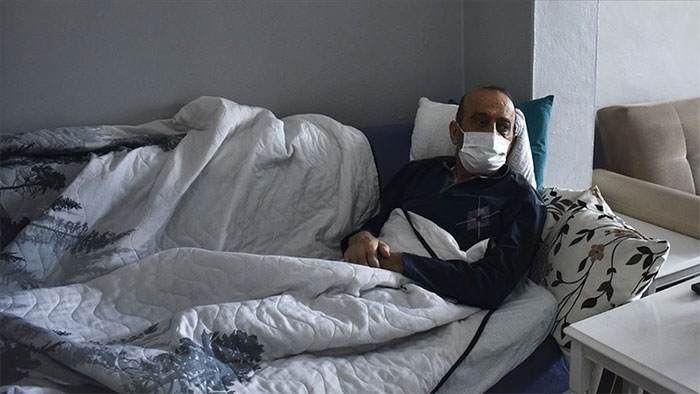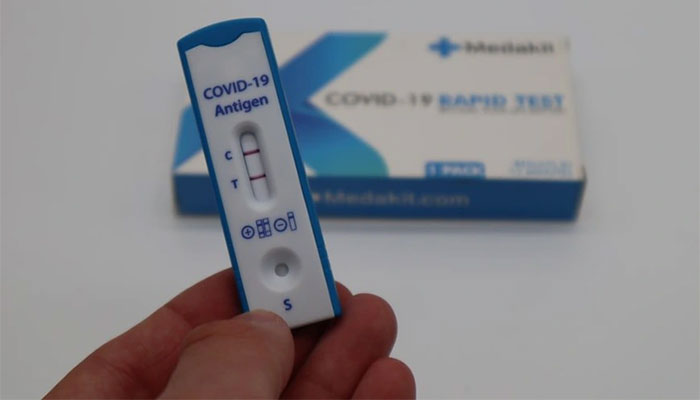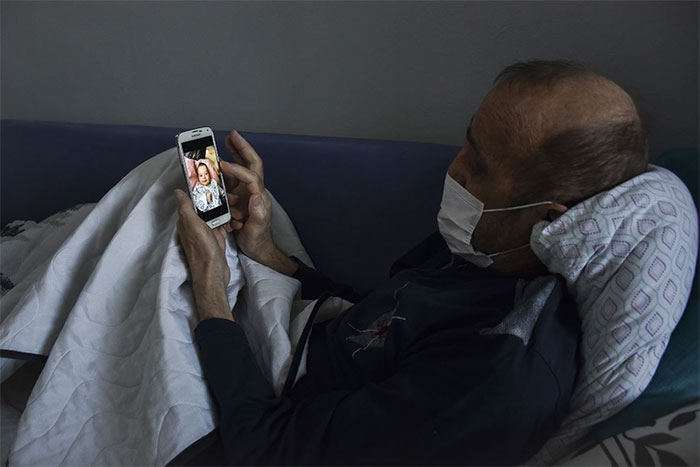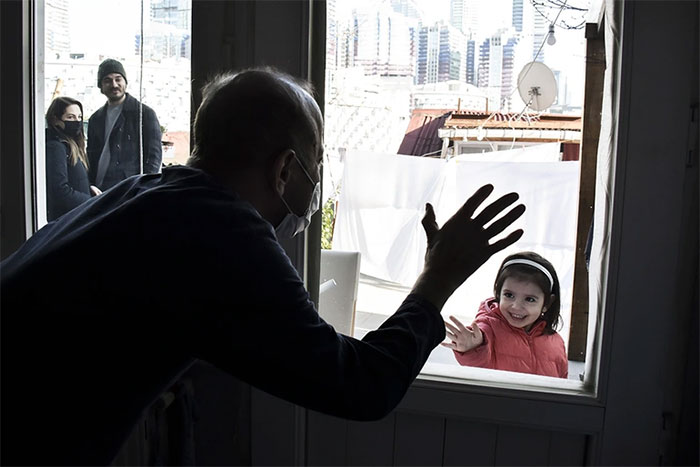A 56-year-old man from Turkey has been living in isolation for 14 months, having tested positive for SARS-CoV-2 no fewer than 78 times since his initial infection in November 2020.
Muzaffer Kayasan, the man from Turkey, has been isolated in a hospital and his own home for over a year due to the impact of Covid-19, and is desperately seeking a way to return to his former life.

Mr. Muzaffer Kayasan in bed, self-isolating at home for 14 months. (Photo: AP).
After contracting the SARS-CoV-2 virus in November 2020, Kayasan was hospitalized and treated until his condition improved. He has overcome severe Covid-19 symptoms, but unlike most people, the virus continues to linger in his body.
As a result, every test Kayasan has undergone since then has returned positive results, forcing him to live in isolation, both in the hospital and at home. Doctors have been “at a loss” with Kayasan’s case as they have been unable to do anything further. Scientists are also seeking answers to explain this unique case.

His Covid-19 test results always come back positive.
It is known that this 56-year-old man is a patient with a history of blood cancer and is immunocompromised. Doctors believe this is why his body has continuously harbored the SARS-CoV-2 virus for such an extended period. He has also been prescribed medication to improve his immune system, but nothing has changed. “This is a long and difficult process,” the doctors commented.
Being isolated for so long has nearly destroyed Kayasan’s social life, preventing him from interacting with family and friends. The poor man can only see his children and grandchildren through a window. Only his wife and youngest son live with him, but even their contact is very limited.

The man can only watch his loved ones from afar, through glass or on the phone. (Photo: AP).
“I do not travel much. Due to my illness, I do not have many visitors. Even when they do come, we still talk from a distance,” he recounted. “I always wear a mask. I take my medication on time as prescribed by the hospital. I have a treadmill at home and exercise regularly. I try to stay positive. But that doesn’t prevent me from feeling down.”
When visitors come, he refuses to let them in. When his grandson visits, he also declines out of fear of infecting the boy. “Throughout my treatment, I have only been able to see my grandchildren 1-2 times; for over a year, I haven’t been able to touch them.”
“I have no issues here except for not being able to touch my loved ones. This is very difficult. I can’t even get vaccinated due to my condition,” Kayasan told local media.

He is pleading with authorities to find a solution for his rare case.
According to a study of nearly 3,000 Covid-19 patients in New South Wales, Australia, 20% of patients fully recovered after 10 days, 60% after 20 days, 80% after 30 days, 91% after 60 days, 93% after 90 days, and 96% after 120 days (these are cumulative rates). Among them, older individuals, those with underlying health conditions, and females tend to recover more slowly.
The average duration of acute illness for Covid-19 is 4 weeks. However, if patients still have symptoms after 4 weeks, it is referred to as long Covid-19, indicating that they are still in the disease phase. If symptoms persist for 3 months, it is called post-Covid-19. However, the terminology and timelines still vary between countries and organizations.
According to the World Health Organization (WHO), it is still not possible to accurately determine how long post-Covid-19 syndrome may last. For the majority of individuals, Covid-19 symptoms may resolve after a few weeks or until they test negative using common methods. However, there are still documented cases of individuals experiencing post-Covid-19 syndrome lasting for weeks or months, even up to 9 months or longer.
It is unclear whether the 14 months of continuous positive testing for SARS-CoV-2—specifically 78 times—sets any kind of record, but Muzaffer Kayasan has endured this and is currently pleading with authorities to find a solution for his case.


















































